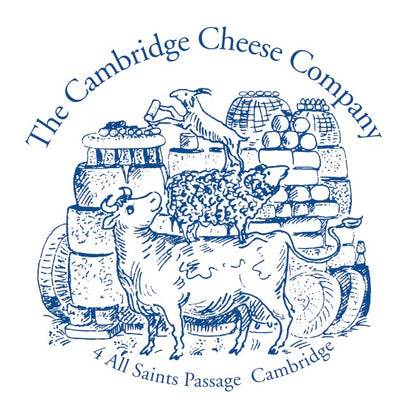Lord of the Hundreds is made by Cliff and Julie Dyball of the Traditional Cheese Dairy which is based in Waldron, East Sussex. The farm, and it’s three generations of owners, have been milking cows since 1962 and are focused on grass based farming and high animal welfare.
By using traditional grazing and farming methods, alongside nurturing the hedgerows, the dairy have helped to maintain and create a diverse and unique ecosystem. They put their animals health, freedom and quality of life at the forefront of what they do.
The recipe for Lord of the Hundreds was developed by the late James Alridge.
James Aldridge was a scaffolder and mechanic from Lambeth who was sadly injured in a building accident. He was unable to continue working so joined his wife, Pat, as a cheesemonger in South London. Little did he know, he would soon become famous for leading a revival of specialist farmhouse cheese in the UK.
He initially focused on sourcing organic, raw milk, British cheeses for the shop that his wife and he ran, tracking down small production cheese makers and searching for those that followed natural production methods. He then moved into rind washing cheeses himself and eventually became well known for his wine washed Caerphilly. He then went on to develop many well known British cheeses including the Flower Marie, Lord of the Hundreds and Olde Sussex.
For many years, he was the go-to man for cheese advice and had a wealth of scientific knowledge that helped him improve a wide range of cheeses.
He was almost bankrupted by the UK government, who ordered the destruction of £50,000 of his cheese, due to an unrelated incident at one of his producers, despite his cheeses being tested and being proven to be uncontaminated. Despite a vast number of donations from the public, he was unable to sell the business so instead opened a cheese making school to benefit British cheese. He passed away in 2001, aged 61, but many of his cheeses continue to be made to this day.
Lord of the Hundreds takes its name from Saxon times, when our modern day counties were divided into 100 shires, each of which was run by a Lord who used a tax collector to gather the taxes from farmers and small holders.
The dairy is focused on grass based farming and high animal welfare. By using traditional grazing and farming methods, alongside nurturing the hedgerows, the dairy have helped to maintain and create a diverse and unique ecosystem.


